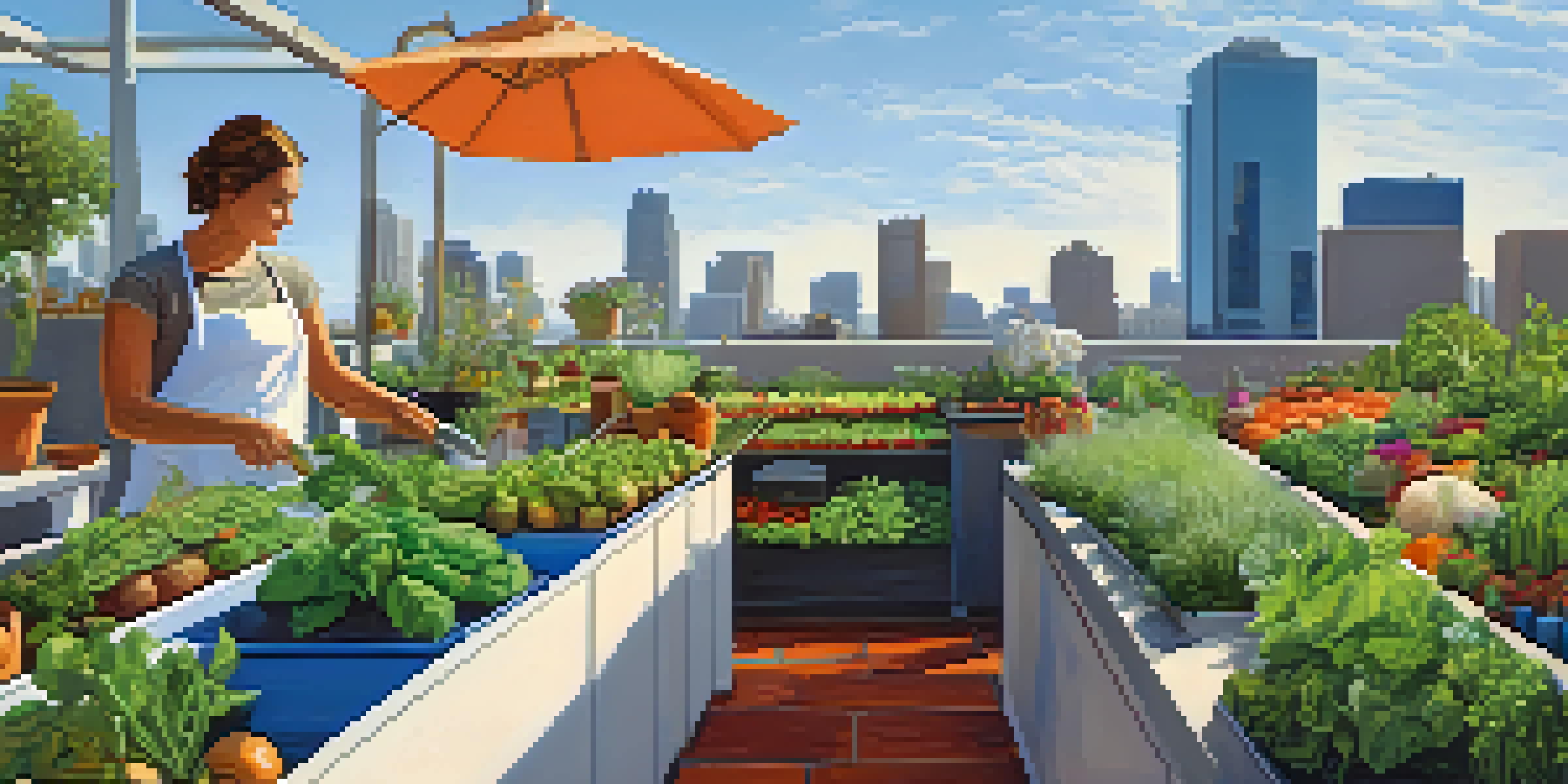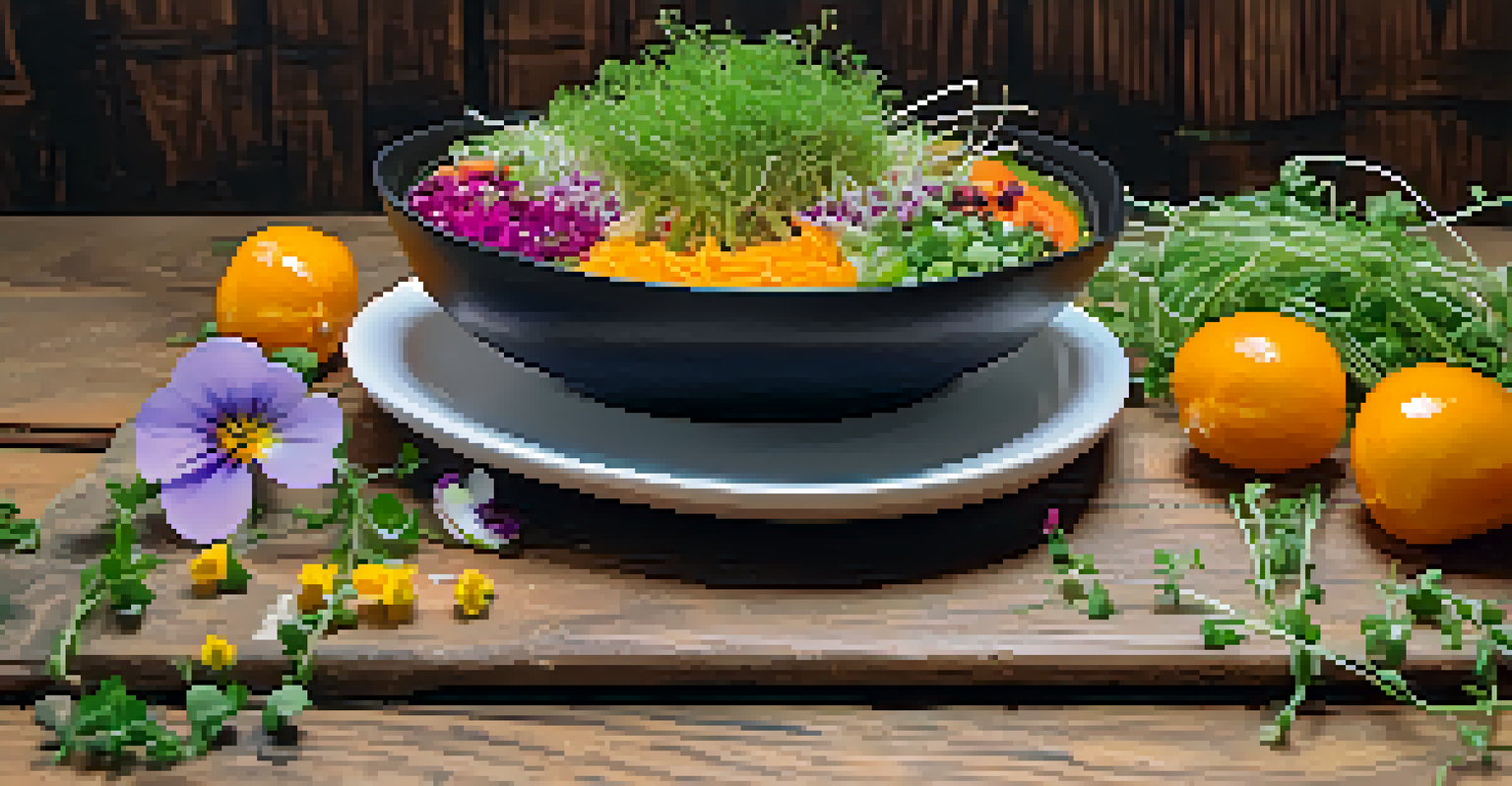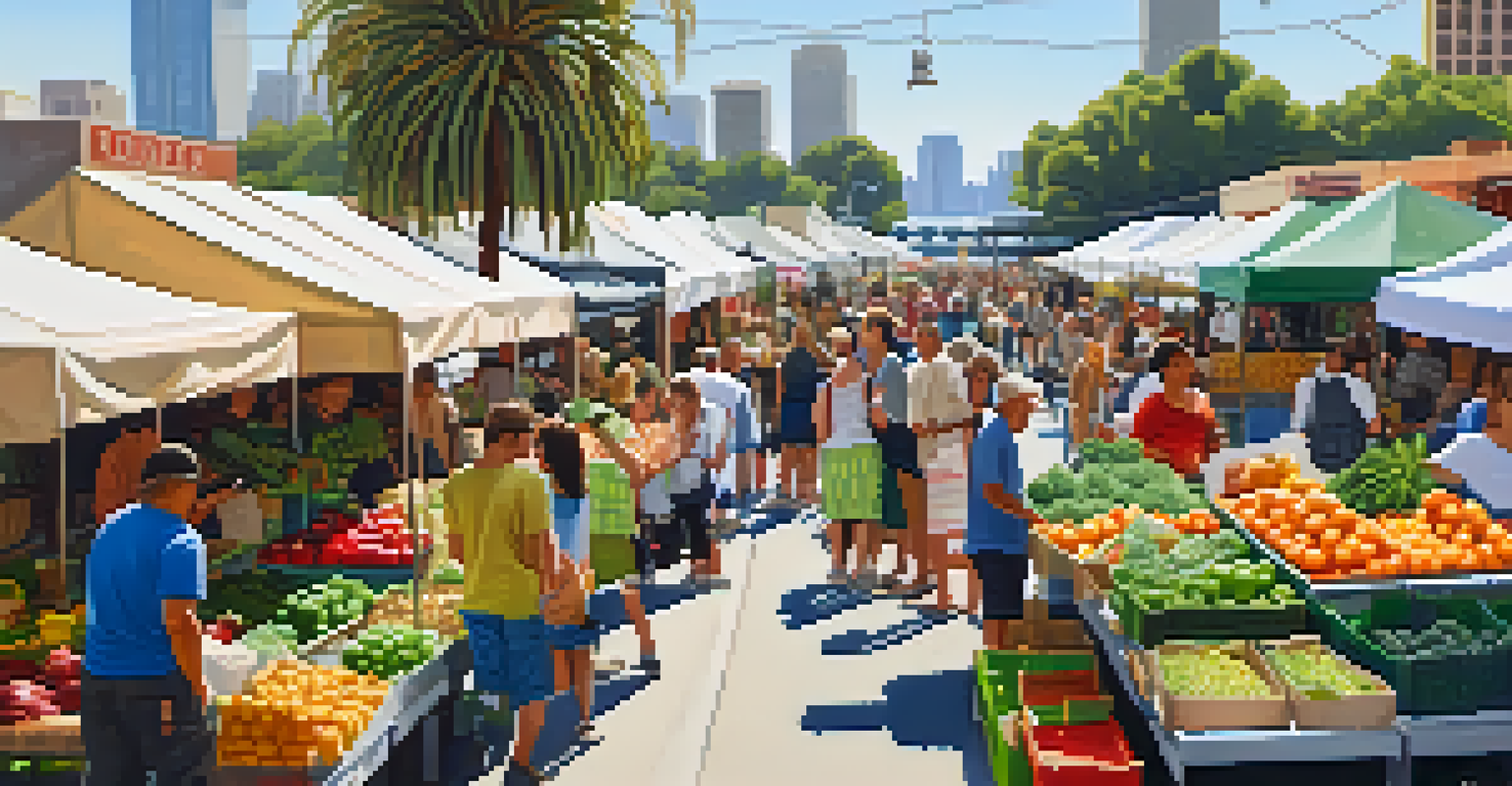Sustainable Practices in LA's Culinary Innovations Scene

The Rise of Sustainable Restaurants in Los Angeles
Los Angeles has become a hotspot for sustainable dining, where chefs prioritize eco-friendly ingredients. This shift not only caters to environmentally conscious consumers but also reflects a growing awareness of food sourcing and waste reduction. Restaurants like Ramen Hood and Crossroads are leading the charge, showcasing how sustainability can enhance flavor and dining experiences.
Sustainability is no longer a trend; it is the new standard.
The demand for locally sourced produce has spurred relationships between chefs and local farmers. These collaborations ensure that the freshest ingredients are available while supporting the local economy. By sourcing seasonal and organic products, these eateries reduce their carbon footprint and foster a more sustainable food system.
Moreover, the rise of plant-based menus represents a significant trend in LA's culinary landscape. With a focus on reducing meat consumption, restaurants are creatively incorporating vegetables, grains, and legumes into their dishes, proving that sustainable eating can be both delicious and innovative.
Innovative Zero-Waste Practices in LA Kitchens
Zero-waste cooking is gaining traction in LA, where chefs are finding ways to minimize food scraps and utilize every part of an ingredient. For example, vegetable peels and stems are transformed into stocks, while leftover bread is repurposed into croutons or breadcrumbs. This creative approach not only reduces waste but also inspires diners to consider their own consumption habits.

Restaurants are also implementing composting programs to divert organic waste from landfills. By partnering with local composting facilities, these establishments contribute to a circular economy, where food waste is turned into nutrient-rich soil for new crops. This practice illustrates how the culinary world can play a pivotal role in environmental sustainability.
Sustainable Dining Takes Center Stage
Los Angeles restaurants are prioritizing eco-friendly ingredients, showcasing how sustainability enhances both flavor and the dining experience.
Additionally, many LA eateries are adopting sustainable packaging solutions to further reduce their environmental impact. By transitioning to biodegradable or reusable containers for takeout, these restaurants are addressing the plastic waste crisis, encouraging customers to think twice about their choices.
Urban Farming: A Culinary Game Changer
Urban farming is flourishing in LA, providing fresh produce right within city limits. Rooftop gardens and community farms are becoming common sights, enabling chefs to harvest ingredients just steps away from their kitchens. This practice not only supports sustainability but also enhances the flavor and quality of dishes served.
The future of food is not just what we eat, but how we grow it and where it comes from.
Many restaurants are now incorporating their own gardens, where they grow herbs, vegetables, and even edible flowers. This direct access to fresh ingredients allows chefs to create seasonal menus that change with the harvest, making each dining experience unique. It’s a win-win for both the restaurant and its patrons.
Furthermore, urban farming initiatives often engage local communities, promoting awareness about food systems and sustainability. Workshops and farm-to-table events educate diners on the importance of local sourcing while fostering a deeper connection to the food they consume.
Embracing Technology for Sustainable Cooking
Technology is playing a pivotal role in advancing sustainability in LA's culinary scene. Innovative kitchen appliances and apps are helping chefs monitor food waste, track inventory, and streamline operations. This not only enhances efficiency but also encourages more sustainable practices.
For example, smart fridges equipped with sensors can alert chefs when food is nearing expiration, prompting creative solutions to use those ingredients before they go bad. This proactive approach significantly reduces food waste, aligning with the zero-waste philosophy many restaurants are adopting.
Zero-Waste Practices on the Rise
Chefs in LA are adopting zero-waste cooking techniques, transforming food scraps into new dishes and implementing composting programs to minimize waste.
Moreover, tech-driven platforms are connecting consumers with local farmers and producers. By using apps that promote direct purchasing, diners can enjoy fresh, seasonal food while supporting sustainable agriculture practices. This tech-savvy approach fosters a community-focused food culture.
Culinary Education: Training the Next Generation
Culinary schools in LA are increasingly incorporating sustainability into their curriculum, preparing future chefs to prioritize eco-friendly practices. Students learn about the importance of sourcing local ingredients, minimizing waste, and understanding the environmental impact of their cooking choices. This education is essential for fostering a new generation of responsible chefs.
Hands-on training in sustainable cooking techniques is becoming a staple in culinary programs. From foraging to preserving, students are equipped with the skills needed to innovate while respecting the planet. This experiential learning approach solidifies the importance of sustainability in the culinary world.
Additionally, partnerships between culinary schools and local farms enable students to gain real-world experience. These collaborations provide invaluable insights into sustainable agriculture, enriching their education and fostering a sense of responsibility towards food systems.
The Role of Community in Sustainable Dining
Community involvement is crucial to the success of sustainable dining in LA. Local organizations and initiatives encourage residents to support restaurants that prioritize eco-friendly practices. This sense of community not only boosts local economies but also fosters a culture of sustainability.
Many restaurants engage with their neighborhoods through events, such as farm-to-table dinners and sustainability workshops. These gatherings create opportunities for dialogue around food sourcing, waste reduction, and environmental impact, empowering diners to make informed choices.
Community Engagement Drives Change
Local initiatives and events are fostering a culture of sustainability in LA's dining scene, encouraging residents to support eco-friendly practices.
Moreover, social media has amplified the reach of sustainable dining efforts. Diners are sharing their experiences, promoting eco-friendly restaurants, and inspiring others to consider sustainability in their food choices. This collective effort is shaping a more conscious culinary landscape in Los Angeles.
Future Trends in LA's Sustainable Culinary Scene
As awareness of sustainability continues to grow, LA's culinary scene is poised for exciting developments. Emerging trends include increased focus on regenerative agriculture and the incorporation of alternative proteins, such as insects and lab-grown meat. These innovations could revolutionize how we think about food production and consumption.
Moreover, food technology is likely to evolve, with advancements in vertical farming and aquaponics becoming more mainstream. These practices promise to enhance local food production while minimizing environmental impact, aligning perfectly with LA's sustainability goals.

Lastly, the emphasis on transparency in food sourcing is expected to rise. Diners are becoming more curious about where their food comes from and how it’s produced, pushing restaurants to share their sourcing stories and practices. This trend fosters a deeper connection between consumers and their food, ultimately driving the sustainable culinary movement forward.